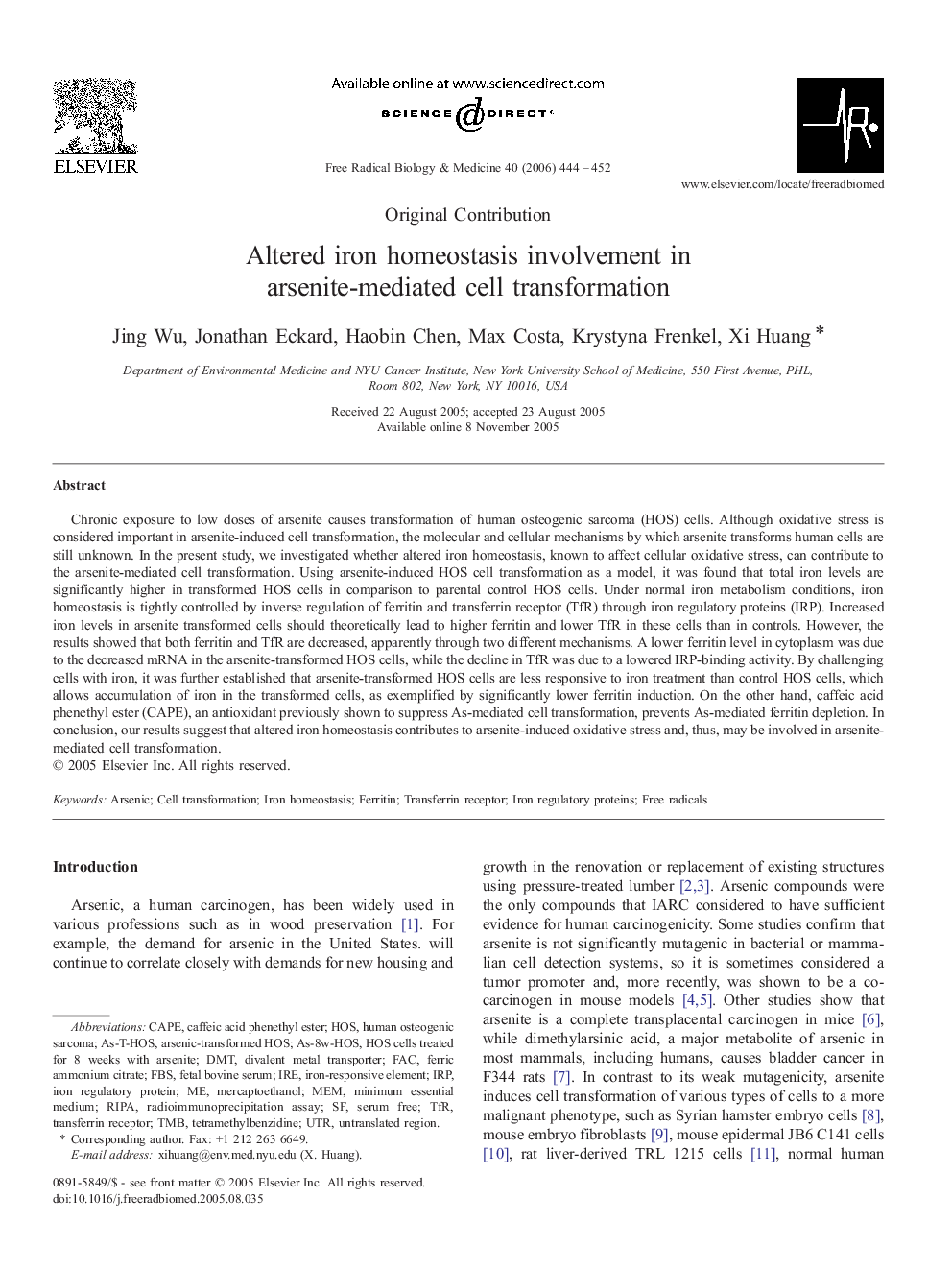| Article ID | Journal | Published Year | Pages | File Type |
|---|---|---|---|---|
| 1912017 | Free Radical Biology and Medicine | 2006 | 9 Pages |
Chronic exposure to low doses of arsenite causes transformation of human osteogenic sarcoma (HOS) cells. Although oxidative stress is considered important in arsenite-induced cell transformation, the molecular and cellular mechanisms by which arsenite transforms human cells are still unknown. In the present study, we investigated whether altered iron homeostasis, known to affect cellular oxidative stress, can contribute to the arsenite-mediated cell transformation. Using arsenite-induced HOS cell transformation as a model, it was found that total iron levels are significantly higher in transformed HOS cells in comparison to parental control HOS cells. Under normal iron metabolism conditions, iron homeostasis is tightly controlled by inverse regulation of ferritin and transferrin receptor (TfR) through iron regulatory proteins (IRP). Increased iron levels in arsenite transformed cells should theoretically lead to higher ferritin and lower TfR in these cells than in controls. However, the results showed that both ferritin and TfR are decreased, apparently through two different mechanisms. A lower ferritin level in cytoplasm was due to the decreased mRNA in the arsenite-transformed HOS cells, while the decline in TfR was due to a lowered IRP-binding activity. By challenging cells with iron, it was further established that arsenite-transformed HOS cells are less responsive to iron treatment than control HOS cells, which allows accumulation of iron in the transformed cells, as exemplified by significantly lower ferritin induction. On the other hand, caffeic acid phenethyl ester (CAPE), an antioxidant previously shown to suppress As-mediated cell transformation, prevents As-mediated ferritin depletion. In conclusion, our results suggest that altered iron homeostasis contributes to arsenite-induced oxidative stress and, thus, may be involved in arsenite-mediated cell transformation.
